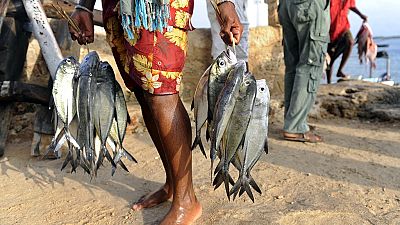Kenya
Kenya has reiterated its intention to ban fish imports from China, the National Assembly's Committee on Agriculture has confirmed.
The move aims to protect local fisheries and fishermen in East African nation.
The committee intends to introduce legislation in the parliament seeking to abolish fish import to the East African nation to protect local fishermen and other fishing resources against foreign exploitation.
"We have to protect our resources and fishermen, who must get the maximum benefit out of the natural resources we have," a member of the committee said.
In 2019, Kenya recorded an annual fish production of 146,687 metric tonnes which also included 102,331 from freshwater production, 18,542MT from aquaculture and 23,700MT from marine resources.
A report compiled by the Global Fish Watch tracker between May and August revealed that Kenyan waters held more than 230 vessels with a larger percentage of these vessels being foreign-owned.
Most of these ships belong to countries like Italy, China, Taiwan and Hong Kong recording approximately 50,000 hours within the Kenyan water boundary.
Several reports indicate that fishmongers from various parts of Kenya were supplementing their daily stock with imported fish from China to meet local demands.
Traders and buyers said the imported fish were actually cheaper compared to the locally acquired variety.
The matter of Chinese fish flooding Kenyan local markets sparked diplomatic unease between Nairobi and Beijing in 2018 when President Uhuru Kenyatta said Kenyan government officials should find ways of curtailing the imports.
Kenya, on the other hand, has had a wide deficit of fish in the local market, therefore, warranting the need to have foreign imports.
China still accounted for the largest share of fish that were imported from the world, raking in 70 percent of the total value of shipment in 2020.












01:01
Kenya: Visa-free travel now available for many African and Caribbean countries
00:22
Boniface Kariuki, a Kenyan mask vendor shot at close range laid to rest
11:17
Bridging the legal gap in Africa’s digital boom {Business Africa}
Go to video
First Malaria treatment for babies approved
00:37
UN Human Rights Office says 'deeply troubled' by Kenya protester deaths
Go to video
AI videos falsely show Kenyan President resigning following deadly protests